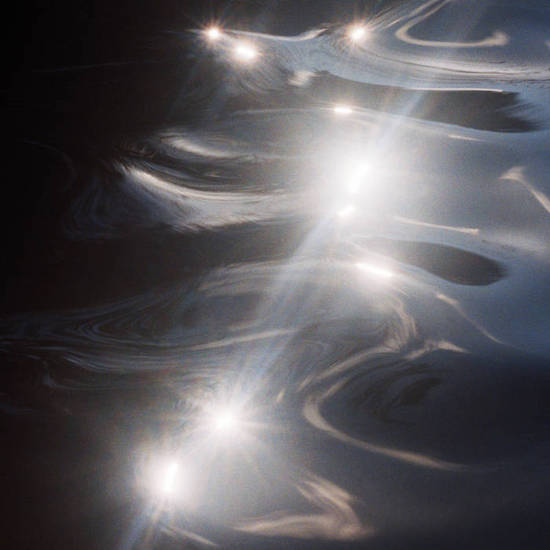Mycelial Echo, the long-distance collaboration between Lisel and Booker Stardrum, is above all a feat of production. Though both have carved out their own corners in experimental music — Lisel (the solo project name of Eliza Bagg) as a classically trained avant garde singer-producer and Stardrum as an electronic musician and producer — their pairing has pushed each individual’s work beyond predictable progressions, beats, or vocal hooks.
Much of the album is a decoupage of Bagg’s vocals, her atmospherically high soprano cut up sometimes to the syllable, copied and pasted in layer upon layer. The kaleidoscopic rotation of vocals throughout the album frequently makes it impossible to determine which central point they pivot around. Vocals are easily mistaken for synthesizers or stand in for percussion. It’s a treat to listen to on headphones as sounds ricochet from ear to ear, somehow in agreement but still butting up against one another.
Mycelial Echo combines songs originally written for two different projects: An opera about trees and Vanishing Point, a modern dance performance with choreographer Gwendolyn Gussman, which you can watch online through Brooklyn arts venue National Sawdust. ‘I’m Not Ready to Go’ and ‘Mycelium’ are the only tracks that don’t feature in Vanishing Point. That the running order of the album isn’t simply one project following the other shows the care that Bagg and Stardrum put into sequencing it. It also reflects how, despite the abstract nature of many of the songs, there is enough compositional cohesiveness to allow for the tracks to fit together in more elastic ways.
The centrepiece of both Mycelial Echo and Vanishing Point is ‘Wolves.’ Starting with a subdued organ-like synth and a sombre, steady vocal, both break up in a stutter of digital delay trampled over by a frantic, sequenced rhythm. Bagg’s vocals come back in from a distant shore and fade out again in a trail of delicate, chiming percussion.
Mycelial Echo was conceived for stage productions, and the language for the mostly wordless album feels very visual, if vague. It comes in subtle suggestions: A sample of running water bubbling up at the end of ‘Stalls’ washes away a burned out vocal and string line, giving way to the clattering percussion of ‘Mycelium.’ A steady beat through ‘In the Dome’ is a glue holding together the shattered fragments of Bagg’s vocals. The rising electronics on ‘Games’ bring back eight-bit memories.
The album closes on the dance floor-ready rhythm of ‘For a While,’ nearly fitting together the vocal, synth, and percussion highlights heard throughout. The syncopation of the final line, “I will still be here when I get back,” is a final inflection from the humans behind the programmed patchwork.


